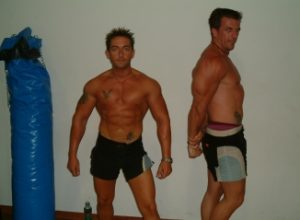‘Bigorexia’ In Men Tied To Self Image, Not Sexuality, Research Finds
 “Bigorexia,” an obsession with the idea of becoming more muscular, is on the rise in men — but researchers still know too little about the problem.
“Bigorexia,” an obsession with the idea of becoming more muscular, is on the rise in men — but researchers still know too little about the problem.
Results from recent research from the University of Sydney and the Australian National University, however, may shed some light on the issue. Using a questionnaire, researchers attempted to identify how men view themselves in comparison to cultural stereotypes of masculinity.
Sexuality vs. body image
Previously, sexuality was believed to be the driving force behind a man’s quest for body perfection. But the study results show that men are more concerned about their body image and how they view themselves—not their attractiveness to the opposite sex.
The results also showed that men are more preoccupied than ever with being more muscular. This “muscle dysmorphia” was associated with a greater preference for masculine roles, while men who desired to be thinner showed a preference for more traditionally feminine roles.
What is a ‘real’ man?
Study leader Dr. Stuart Murray says that these findings don’t indicate that men who desire to be thin are any less masculine, but that, overall, there is an increasing pressure to define one’s own masculinity in today’s world.
“This study, if replicated, may provide valuable information for researchers to develop better treatment programs for men with eating disorders,” said co-author Professor Stephen Touyz, from the University’s School of Psychology.
The research is published in the Journal of Eating Disorders.
Source: Medical XPress
 Eating Disorder Self Test. Take the EAT-26 self test to see if you might have eating disorder symptoms that might require professional evaluation. All answers are confidential.
Eating Disorder Self Test. Take the EAT-26 self test to see if you might have eating disorder symptoms that might require professional evaluation. All answers are confidential.